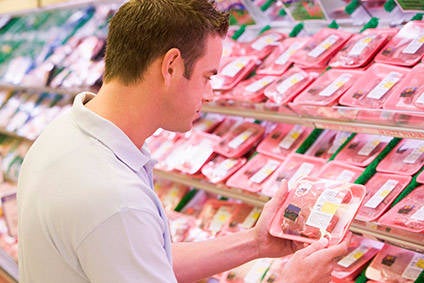
UK Members of Parliament have voted against an amendment to the new Agriculture Bill which would have required trade deals to meet the country’s animal welfare and food-safety standards.
In an attempt to ensure that chlorinated chicken, hormone-fed beef and other heavily-treated food stuffs could not be imported into the country under a UK-US trade deal, Parliament’s upper chamber, the House of Lords, inserted the amendment into the bill last month.

Discover B2B Marketing That Performs
Combine business intelligence and editorial excellence to reach engaged professionals across 36 leading media platforms.
But yesterday (12 October), when the bill returned to the House of Commons, MPs voted by 332 votes to 279 to back Government plans to reject the amendment.
The Government has repeatedly said it would walk away from a trade deal with the US rather than allow in food that does not meet UK standards but campaigners remain concerned that after 31 December, when the post-Brexit transition period ends, the UK will be in no position to call the shots with regard to doing a deal with such an important potential trading partner.
And the farming community is concerned whether current food standards will be upheld and if cheap US food imports would undermine domestic producers.
A petition backing this stance organised by the National Farmers Union has gathered more than a million signatures.

US Tariffs are shifting - will you react or anticipate?
Don’t let policy changes catch you off guard. Stay proactive with real-time data and expert analysis.
By GlobalDataFarming minister Victoria Prentis reiterated that the Government was “absolutely committed to high standards” and said existing laws already offered food standard safeguards.
She added: “The tools we have to ensure high standards are, as I have tried to set out, many and varied. They are strong enough to protect standards, even under pressure. We have existing regulation under retained EU law, which is watched carefully and controlled by the Food Standards Agency. Parliament can scrutinise new trade deals, as indeed the Select Committee on International Trade is about to do for the Japan deal. Other experts, including those on the Trade and Agriculture Commission, can advise us on trade policy. Last, but by no means least, we have the buying power of the British consumer, who is increasingly committed to high standards of animal welfare.”
The Government said European Union rules banning imports of chlorine-washed chicken and other products will be automatically written into UK law once the transition period ends.
Peers in the House of Lords had made a number of changes to the bill, including giving MPs a veto over sections in trade deals relating to food imports.
Last week, UK International Trade Secretary Liz Truss said the country’s food and farming standards will be maintained in any trade deal agreed with the US.
But she refused to sanction a “blanket ban” on imports from countries with different food rules, saying this would prevent “developing countries from sending their foodstuffs to the UK”.





